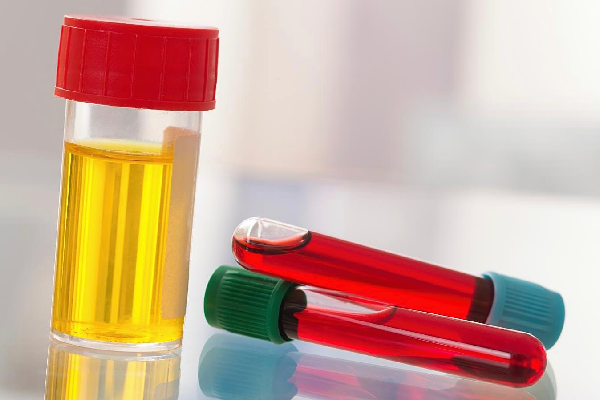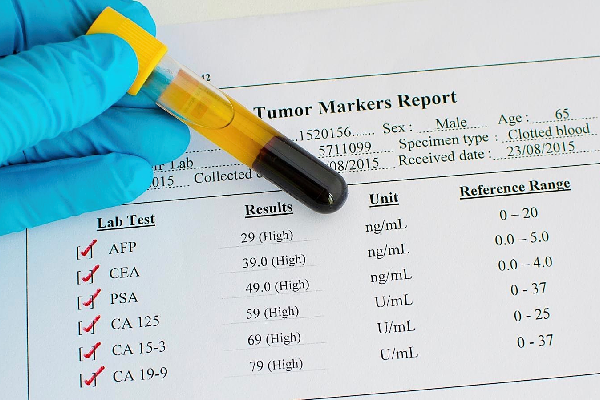Malignancies are among the leading causes of death worldwide. In addition, Hungary is regularly at the top of the sad rankings - with thousands of new cases and more than 30,000 deaths caused by malignant tumours every year. It is no coincidence that many people are concerned about the question: what results, what tumour markers can indicate a cancerous lesion?
Tumour markers are substances (proteins, hormones or antigens) that are absent or present only in very low numbers in a healthy body. The substances associated with malignant tumours are usually derived from tumour cells, but they can also be produced as a reaction of the body to a cancerous lesion.
It is important to note that “tumour markers" do not necessarily indicate a malignant lesion, and a single piece of data is never sufficient to diagnose a disease. Elevated values may indicate inflammation or benign lesions, and tumour markers may also show normal values in advanced cancer.
Sampling of urine, blood, tissue - Types of tumour markers
Tumour markers are therefore not suitable for cancer screening, but they are important markers in oncology as they can indicate the recurrence of a tumour as well as the appearance of metastases. Depending on the type, tumour markers are tested in urine, blood or a histological sample. If the values are suspicious, a more detailed investigation (for example, a CT or MRI scan) will be necessary.

The following tumour markers may provide useful information for the oncologist:
- AFP (alpha-fetoprotein) - This protein may also be elevated in severe liver inflammation, but it can also indicate malignant tumours of the intestinal tract, testicle or ovaries, in addition to the liver. It is used to screen for these lesions and to monitor the therapy used.
- CA 125 (Cancer antigen 125) - The protein is a major component of the mucosa. If its concentration is markedly elevated, this may indicate the presence of ovarian cancer, yet abnormal values may also be measured during endometriosis, pelvic inflammatory disease or pregnancy.
- CA 15-3, CA 549, MCA (Cancer antigen 15-3) - This protein is also produced by healthy breast cells, but is increased in tumour cells. It is used in the treatment and control of certain breast cancers for evaluation.
- CA 19-9 (Carbohydrate antigen 19-9 or Cancer antigen 19-9) - Elevated levels of this antigen may be caused by stomach cancer or pancreatic cancer. It is mainly used to monitor the treatment of these types of cancer and to detect possible recurrence of the disease.
- CA 72-4 (Cancer antigen 72-4) - It is used to monitor the effectiveness of therapy in gastrointestinal cancers, particularly stomach cancer, but may also be present in elevated levels in the body in the case of breast, ovarian, endometrial and non-small cell lung cancers.
- CEA (Carcino-embryonic antigen) - The protein is usually undetectable in healthy people. The levels of the antigen can be elevated by many tumour types, so it is usually tested in combination with other tumour markers. Abnormal values can be caused by lung, liver, breast, cervical, colon and rectal cancer. It is mainly used to monitor the treatment once started.
- CYFRA 21-1 (Cytokeratin-19 fragment) - It is used to monitor the progression of non-small cell lung cancer and also to monitor the progression of bladder cancer.
- NSE (Neuronspecific enolase) - An enzyme of glucose metabolism used primarily as a marker of the small cell lung cancer process.
- HCG (Human Corion Gonadotropic Hormone) - Elevated levels of this hormone are quite natural in pregnant women, but in men and non-pregnant women they can be a sign of abdominal and breast tumours or testicular and ovarian cancers.
- PSA (Prostate Specific Antigen) - The level of this protein produced by the prostate gland can be different from normal even in healthy men, but can also indicate the presence of prostatitis or prostate cancer. It helps to monitor the effectiveness of therapy once it has started.
- SCC (Squamosal cell carcinoma antigen) - The antigen may be elevated in squamous cell carcinomas, head and neck tumours.
- TG(Thyroglobulin) - It is used to assess the effectiveness of thyroid tumour treatment and to investigate tumour recurrence.
Take part in a tumour marker test yourself.
If you have a family member with a history of cancer or symptoms suggestive of cancer, take advantage of our tumour marker packages specially designed for women or men! Our doctors can help you not only with the sampling, but also with interpreting the values in the results and, if necessary, with determining the further actions if needed.
Practically all diagnostic tests and treatments are available at our clinic.
